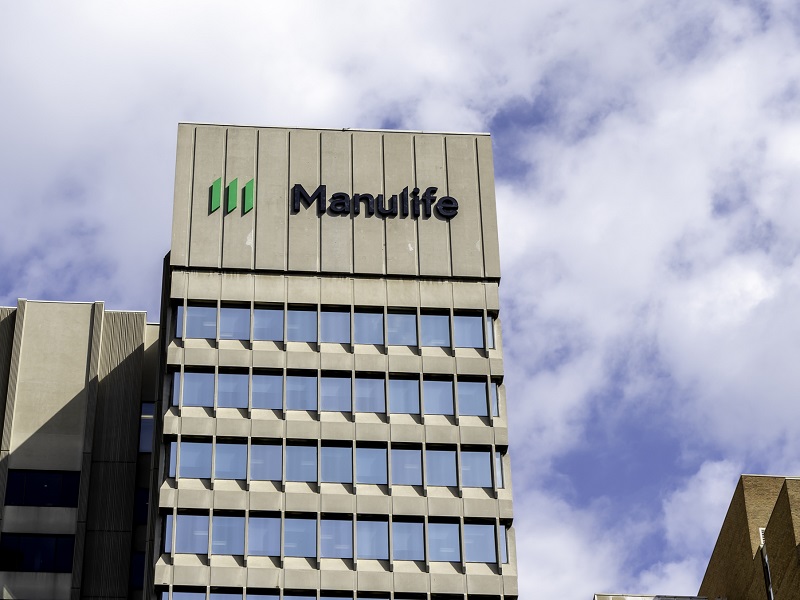
Manulife Financial Corp. says first-quarter earnings were down from last year because of the effects of a major reinsurance deal.
The insurance giant says its net income attributed to shareholders for the quarter ending March 31 was $866 million, down from $1.4 billion in the same quarter last year.
It says the results include the $800-million impact from a $13-billion reinsurance deal with Global Atlantic that it says included the largest long-term care reinsurance deal in history.
Manulife says the net earnings hit of the deal was broadly offset by a boost to other comprehensive income to make it neutral to book value.
It says core earnings were $1.75 billion, up from $1.53 billion last year.
Manulife says the reinsurance deal was done to reduce risk and redirect capital to growth areas.
In Canada, core earnings were $364 million in the first quarter, up 3% from the same quarter last year.
Annual premium equivalent sales in Canada were $450 million in the quarter, up 54% compared to the same quarter last year. The increase included higher participating life insurance sales, higher sales in group insurance, and higher sales of segregated funds and fixed annuities, the report to shareholders said.
Manulife’s assets under management in Canada were $146.7 billion at March 31, in line with $147.5 billion at Dec 31. The result was attributed to the impact of higher interest rates, partially offset by higher segregated fund net assets, mostly related to equities market performance, the report to shareholders said.
In addition to the Global Atlantic deal, Manulife announced in the quarter a universal life reinsurance deal that it described as the largest ever such deal in Canada. Manulife chief executive Roy Gori said on an earnings call that the company plans to return the $2 billion in capital released by the two deals through share buybacks.
The company said it expects to accelerate buybacks from the $200 million it did in the first quarter to around $600 million per quarter for the rest of the year.
The increased share buybacks come as the federal government is putting in place a new 2% tax on share repurchases that will cover transactions as of the start of 2024.
The government said the new tax, which follows a 1% buyback tax introduced in the U.S., is meant to both raise revenue and encourage companies to reinvest in their workers and businesses.
Company executives didn’t mention the tax on the call, but did say they’ve been investing to make sure sales agents have the digital tools needed to be highly productive.
Manulife’s focus on buybacks has helped boost its core return-on-equity measure, which neared 16% at the end of 2023 and came in at 16.7% in the first quarter.
The returns are up significantly from the 11% Manulife was at in 2017, as it’s worked to shed low-return segments, said Gori.